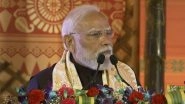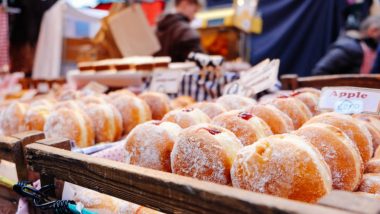New York, April 3: Craving for unhealthy food can drive us to pay disproportionately more for it, by boosting the value of tempting, unhealthy snacks, a study has found. Experiments showed a connection between craving, portion and price. People were willing to pay disproportionately more for higher portion sizes of the craved items. "It appears that craving boosts or multiplies the economic value of the craved food," said Anna Konova, a postdoctoral researcher in New York University.
There is growing interest across several sectors in understanding how our psychological states and physiological needs affect our behaviour as consumers. Of particular concern is craving, which has long been recognised as a state of mind that contributes to addiction and, in recent years, to eating disorders and obesity.
"Our results indicate that even if people strive to eat healthier, craving could overshadow the importance of health by boosting the value of tempting, unhealthy foods relative to healthier options," said Konova, lead author of the study published in the journal PNAS. "Craving, which is pervasive in daily life, may nudge our choices in very specific ways that help us acquire those things that made us feel good in the past - even if those things may not be consistent with our current health goals," Konova said.
Scientists conducted a series of experiments in which they asked subjects to indicate how much they would pay for certain snack foods after they developed a craving for one of them - significant differences in a desire for a specific food item before and after exposure to the item constituted cravings.
The results showed that people were willing to pay more for the same exact snack food item if they were just exposed to it and asked to recall specific memories of consumption of this item, relative to before this exposure. This occurred even if the participants were hungry before and after the exposure, suggesting that craving and hunger are partly distinct experiences.
This means that craving a chocolate bar does not make one hungrier, but makes a person desire the chocolate bar specifically, said Kenway Louie, an NYU research assistant professor. The researchers found stronger effects - bigger changes in the willingness to pay for an item the subjects craved - when the items were higher-calorie or had higher fat or sugar content, such as a chocolate bar or cheese puffs, relative to healthier options.













 Quickly
Quickly


